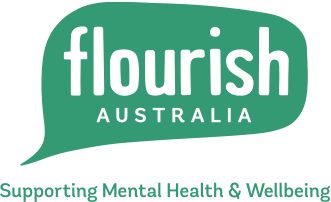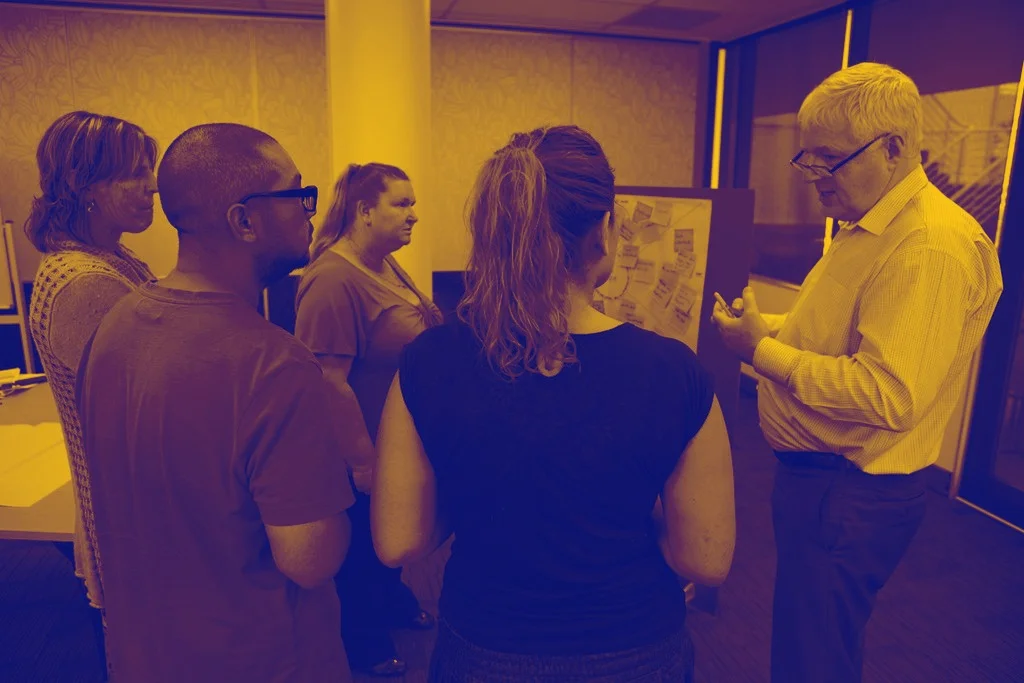
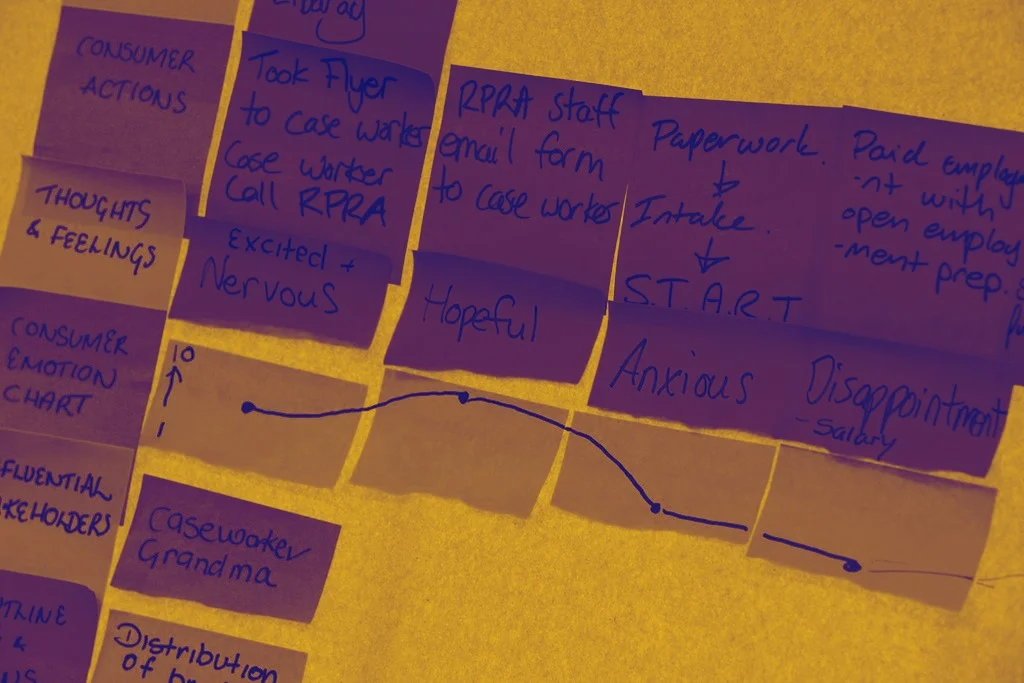
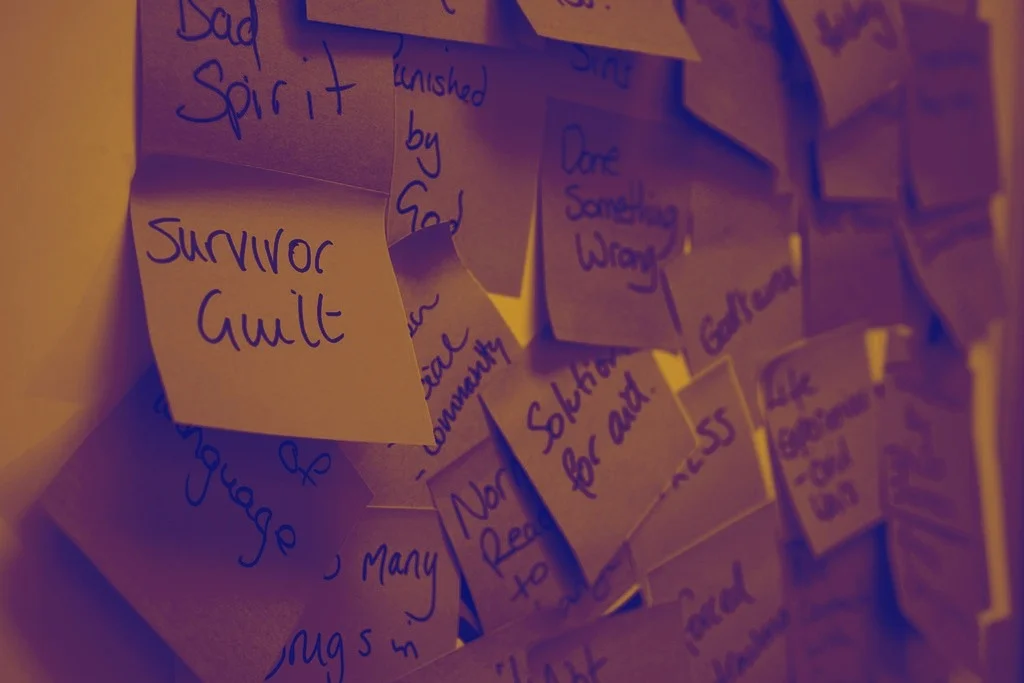
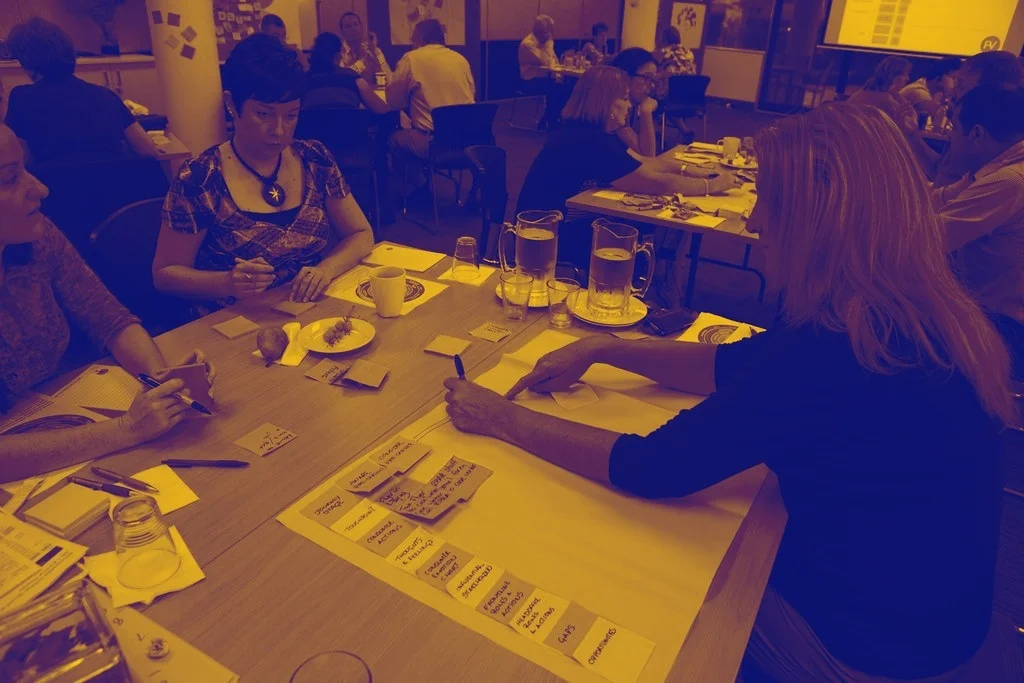
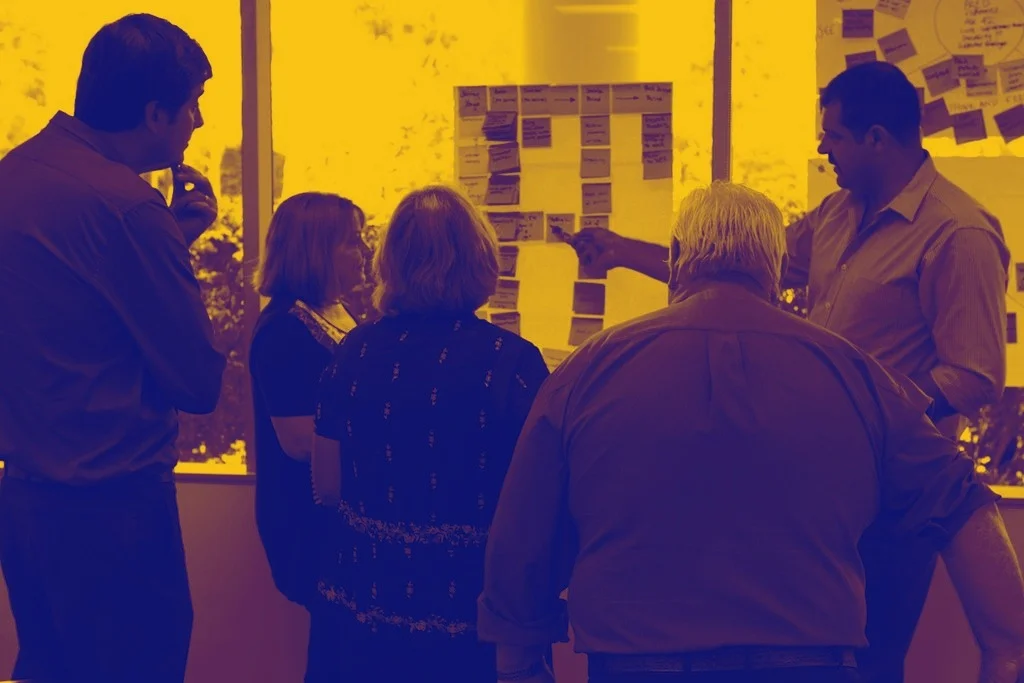

Module 2
Introduction to cultural and linguistic diversity in mental health
Module 2
Introduction to cultural and linguistic diversity in mental health
ABOUT THIS MODULE
Welcome to Flourish Australia’s introductory module on cultural and linguistic diversity (CALD) in mental health settings.
This module is an introduction and does not replace the need for more extensive training on working with people from CALD communities in mental health contexts.
Staff are therefore encouraged to do further research and professional development in this area to fully inform their practice at Flourish Australia.
This module has 4 sections along with associated activities, external links and resources:
- Section 2.1 Disparities in access
- Section 2.2 Beliefs about the causes of mental health issues
- Section 2.3 An introduction to cross-cultural strategies
- Section 2.4 Using the Cultural Awareness Tool
ABOUT THE PRESENTERS
Rajiv Ramanathan
Rajiv Ramanathan is Director of Practical Visionaries, a diversity innovation agency that assisted RichmondPRA with the development of its diversity strategy.
Rajiv previously coordinated the Commonwealth's Multicultural Mental Health Australia's national policy and capacity building initiatives. Rajiv also worked in disability, youth, homelessness and community mental health, including the Victorian-based Mind Australia.
Vicki Katsifis
One of Vicki Katisifis' earliest consumer experiences was as a resident at the previous Richmond Fellowship NSW. Vicki has since moved on to become a passionate advocate and trainer in Australia's consumer movement.
A winner of the 2008 Consumer of the Year award from the Consumer Activities Network for her “Contributions to the promotion and acceptance of people living with mental illness within the Australian Community”, Vicki brings with her years of experience, passion and commitment in culturally and linguistically diverse consumer advocacy.
John Spiteri
John Spiteri brings decades of experience in the mental health and multicultural sectors and was instrumental in the successful implementation of the NSW Transcultural Mental Health Centre’s multimedia, multilingual mental health promotion, prevention and early intervention strategies and workforce development initiatives.
John recently co-designed Mental Health in Multicultural Australia's cultural responsiveness scoring tool.

Section 2.1
Disparities in access
Section 2.1
Disparities in access
John Spiteri introduces research that reveals disparities in access to mental health services for Australia’s culturally and linguistically diverse populations.
MULTICULTURAL MENTAL HEALTH RESEARCH
A Spotlight Report by the National Mental Health Commission looks at what is known about the mental health of culturally and linguistically diverse (CALD) communities in Australia; whether our mental health research pays adequate attention to cultural and linguistic diversity; and whether national data collections support evidence informed mental health policy, practice and reform in multicultural Australia. The report, written by Mental Health in Multicultural Australia (MHiMA), makes independent recommendations for policy makers, researchers and others.
SELF REFLECTION
What are the key issues in terms of access to mental health services for people from culturally and linguistically diverse backgrounds?

Section 2.2
Beliefs about the causes of mental health issues
Section 2.2
Beliefs about the causes of mental health issues
Vicki Katsifis introduces some of her personal insights from her experience working in Australia’s CALD consumer advocacy movement.
SELF REFLECTION
The image below summarises categories of factors about how people from culturally and linguistically diverse backgrounds may conceptualise the causes of mental health issues.
Click here to download the image >
Brainstorm
For each of these categories, come up with as many explanations people from culturally and linguistically diverse background may have about the causes of mental health issues.
As this is a brainstorm, there are no wrong answers. So you might think of some biological factors, some psychological factors or any combination of those factors. You might have five. You might have 500. Just go for quantity.
Allow yourself two minutes to try and list as many ideas as you can. Go for it!
Compare your answers to those that have been identified in the video above.
DIFFERENT PEOPLE WILL HAVE DIFFERENT PERCEPTIONS
The important point with this exercise is to understand that different people will have different perceptions about their own experience. Therefore, one of the key tasks in your practice may be to find out what the people who access our services particular perception is of what they are experiencing and how they make sense of that particular perception.

Section 2.3
An introduction to cross-cultural strategies
Section 2.3
An introduction to cross-cultural strategies
Vicki shares real stories about perceptions about mental health issues by CALD people she has worked with and reflects on the impact of those perceptions on their lives. Listen for strategies that helped.
Vicki shares her insights into working with CALD people and carers. She highlights the value of getting to know what recovery means to CALD people and carers.
By respecting the CALD peoples’ view point on what recovery means to them and understanding it from their personal perspective, the consumer can achieve expertise in their own care, a central tenet in recovery oriented services.
Vicki shares her insights about what it means to work with CALD peole and carers starting with where they are at and with what is important to them in their context. This includes recognising the impact of experiences such as
- Stigma
- Racism
- Intergenerational issues
- Refugee issues
SELF REFLECTION
List as many issues that you think are important to consider when working with people and carers from CALD backgrounds.

Section 2.4
Using the Cultural Awareness Tool
Section 2.4
Using the Cultural Awareness Tool
Seah et al's cultural awareness tool uses Kleinman's explanatory model to find out how the people who access our services , or the person in front of you, explains what they are experiencing from their perspective.
Find out how you can use the Cultural Awareness Tool to find out what is important to the people who access our services.
SERVICE REFLECTION OPPORTUNITY
Practical Visionaries have developed a conversation starter resource to support exploratory conversations at Flourish Australia. The resource is centred around nine questions in Seah et al’s Cultural Awareness tool. This resource is to be used with Flourish Australia’s online Exploring Diversity Toolkit. It is not a validated assessment tool but a tool to begin exploring how you can start incorporating culturally appropriate practice at the service level.
Instructions
- View the video in section 2.4 of Module 2 (CALD) in Flourish Australia’s online toolkit for instructions on how to use this resource.
- Download and print the Incorporate Cultural Awareness Worksheet resource.
- Request permission from your manager to complete the worksheet with colleagues from your site/team. This activity may require about 20 to 30 minutes of your team time (this will form part of the assessment requirement for this unit). Negotiate a time that would suit you and your team. Please consider your team’s work demands. It may be best to incorporate this activity as part of an extra session during your team meeting for example.
- Explain to your team the rationale for undertaking this activity. See the video in section 2.4 of Module 2 (CALD) in Flourish Australia’s online toolkit for the rationale for this activity.
- You can also view the insight clips (section 2.4) about how staff within Flourish Australia have completed this activity to give you more ideas about the conversations you could have with your team.
- Complete the worksheet with your team and reflect on how you could make changes within your site/team.
- You may wish to download and refer to the original Cultural Awareness Tool to strengthen your knowledge on how to use the tool in this activity.
Click here to download the "Incorporate Cultural Awareness" resource >
Click here to download the Seah et al's original Cultural Awareness Tool >
INSIGHT CLIPS: USING THE TOOL
Participants from Flourish Australia's Common Ground diversity workshop reflect on how they use the tool to generate insights that could make a difference at Flourish Australia.
ADDITIONAL RESOURCES
Multicultural Mental Health Issues
A report prepared by Rajiv Ramanathan of Practical Visionaries, for Connectica's Obsessive Hope Disorder report, provides a snapshot of key multicultural mental health policy issues in Australia.
Click here to access the resource >
CALD Resource Guide
Practical Visionaries developed a preliminary CALD resource guide for Flourish Australia as part of the Common Ground workshop.
Click here to access the resource >
Mental Health in Multicultural Australia Framework
The Framework has been developed by Mental Health in Multicultural Australia to help organisations and individual workers to:
- Evaluate their cultural responsiveness
- Enhance their delivery of services for CALD communities.
